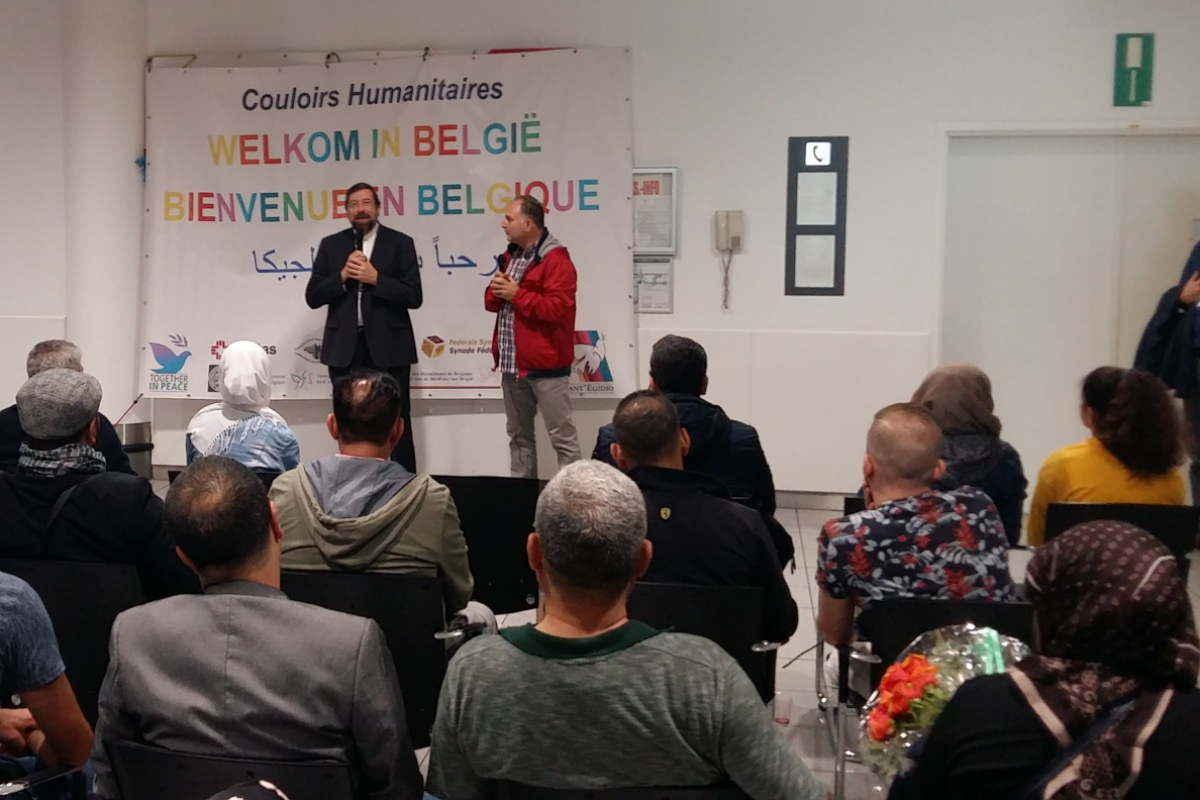Belgian Faith Communities Welcome Asylum-Seekers

Late in September, 29 Syrian refugees arrived in Brussels as a result of a sponsorship agreement between religious organizations and the Belgian government. The Roman Catholic Diocese of Liège has welcomed two families.
The new arrivals have benefited from humanitarian visas. Issued by the Belgian government, these visas allow vulnerable groups to enter the country through “humanitarian corridors.”
Via these safe routes, migrants avoid the risks associated with the long journey from the Middle East to Europe, which include abuse by smugglers and human trafficking. They can then apply for asylum within a few days of entering the country.
Refugees who are granted humanitarian visas have been assessed as particularly vulnerable. They include people who are sick or disabled, elderly people, families with children and minorities suffering from persecution.
The agreement, signed by the government and various faith communities in November 2017, is overseen by the Sant’Egidio community.
It stipulates that 150 Syrian refugees arriving from Turkey and Lebanon will enter Belgium through humanitarian corridors. One hundred of them will be sponsored by the Bishops’ Conference of Belgium, ten in each of the country’s dioceses.
The religious communities involved are responsible for resettlement costs and support for the first year in the country. The government is in charge of ensuring security and providing humanitarian visas.
This system innovates on the traditional model of refugee resettlement by involving civil society organizations through private sponsorship.
These latest arrivals bring the number of refugees admitted through the agreement on the humanitarian corridor and private sponsorship to 101. The remaining 49 refugees are expected to arrive before the end of 2018.
ICMC supports and promotes complementary admission pathways to Europe. Together with its partners, ICMC Europe coordinates the European Resettlement Network (ERN+), which advocates for safe and legal admission channels, such as community-based sponsorship, higher education scholarships, and humanitarian corridors.
Migrants and refugees not a threat, bishops say
Early in October, Msgr. Luc Van Looy, Bishop of the Diocese of Ghent and President of the Interdiocesan Commission for Migrations, Pro Migrantibus, reaffirmed the Catholic Church’s commitment to welcome and support those in need.
“Migrants and people who are forced to flee their country because of turmoil and catastrophes don’t deserve to be stigmatized as a threat to our society,” reads a statement issued by the Commission. “As a Church, we continue to plead for more humane migration policies in our country.”
The statement came in response to “harsh and stigmatizing” depictions of migrants in Belgian media that preceded the municipal and provincial elections of 14 October 2018.
• Read the Diocese of Liège’s article (in French)
• Read the press release by Msgr. Luc Van Looy and the Interdiocesan Commission for Migrations, Pro Migrantibus (in French)
• Learn more about the European Resettlement Network (ERN+)